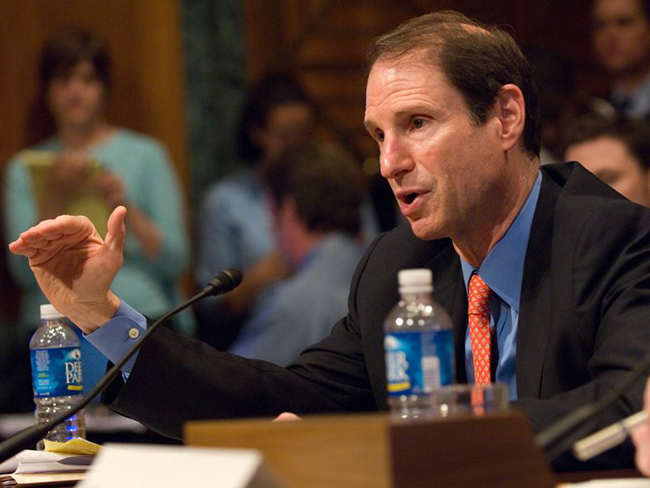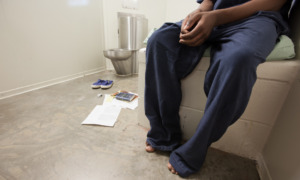
Sen. Ron Wyden
WASHINGTON — When states spend federal child welfare money, the funding rules mean most of the money goes to foster care services.
But many government officials and children’s advocates say the money could be better spent on services that help a family stay together without the need for a foster placement.
Sen. Ron Wyden of Oregon, the top Democrat on the Senate Finance Committee, introduced legislation Wednesday that would give states flexibility in how they use child welfare funding.
The Family Stability and Kinship Care Act would change how states can use money provided under Title IV-E of the Social Security Act. States would be able to pay for services such as family skills training or counseling, or concrete goods and services such as a washer or dryer that could help a child stay at home, return home or live with relatives.
More than 400,000 children were in foster care in the United States, according to 2013 data from the Children’s Bureau of the federal Health and Human Services Department.
Focusing on choices and keeping families together
Wyden said the bill is not a condemnation of foster care, which serves many children well.
“What this is all about is creating as many good choices as we possibly can for youngsters to grow up in a safe, healthy environment. That means keeping families together,” he said.
MaryLee Allen, policy director at the Children’s Defense Fund, said advocates have been pushing for years for changes to child welfare funding that would prioritize keeping families together.
“It’s a long-overdue step in making investments in services that can help children stay at home,” she said.
[Related: Youth Today’s complete coverage on foster care]
Allen said the bill’s attention to the needs of a child and family before, during or after a foster care placement is important.
“It really looks at the system the whole way through,” she said.
The bill also would increase funding for community-based prevention and intervention services by $470 million per year through the Promoting Safe and Stable Families program. The bill would provide $1 billion in mandatory funding through the program.
John Sciamanna, a government affairs specialist for the Child Welfare League of America, said the increased funding is significant.
“We think that’s a critical component. A lot of proposals have talked about shuffling existing money,” he said.
Significant support for the bill
Wyden’s bill was introduced with the support of seven co-sponsors from the committee, all Democrats.
Senate Finance Chairman Orrin Hatch (R-Utah) said on Tuesday, though, that he hopes the committee will consider the bill and any amendments to it in the fall.
Hatch wants to curb the use of foster care group homes. Policies that keep more families together would help do so, he said.
“It is not sound public policy to work to reduce the reliance on group homes without addressing the need to support a family placement for children and youth currently in or at risk of entering one of these facilities,” he said.
More than 60 organizations have said they support Wyden’s bill, including the American Academy of Pediatrics and the National Association of Public Child Welfare Administrators, according to committee staff.
Rep. Lloyd Doggett (D-Texas) is expected to introduce companion legislation in the House soon.
More stories related to this one:
Making Health Care Access Easier for Young People Leaving Foster Care
California Photographers Focus on Life After Foster Care in New Book
The One Question Foster Care Workers Need to Ask Themselves
Legislation Would Keep Foster Kids From Having to Change Schools
Young Mothers in Foster Care: Resilience in Action




























